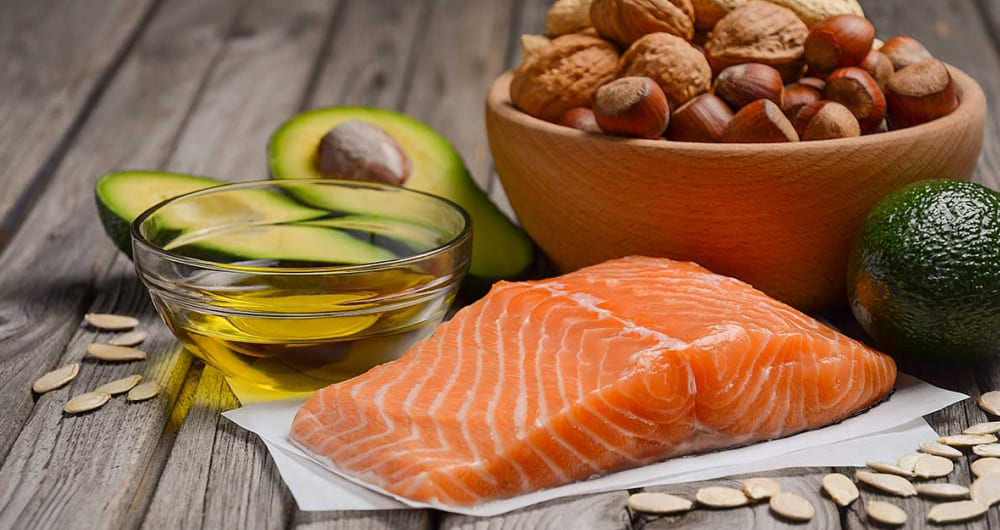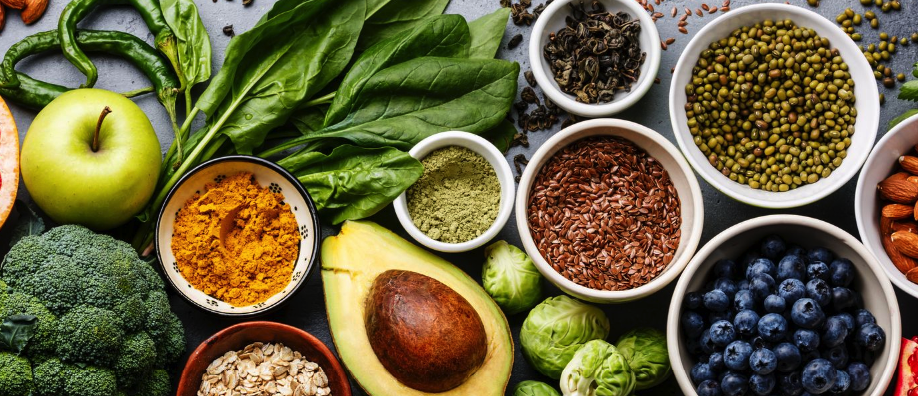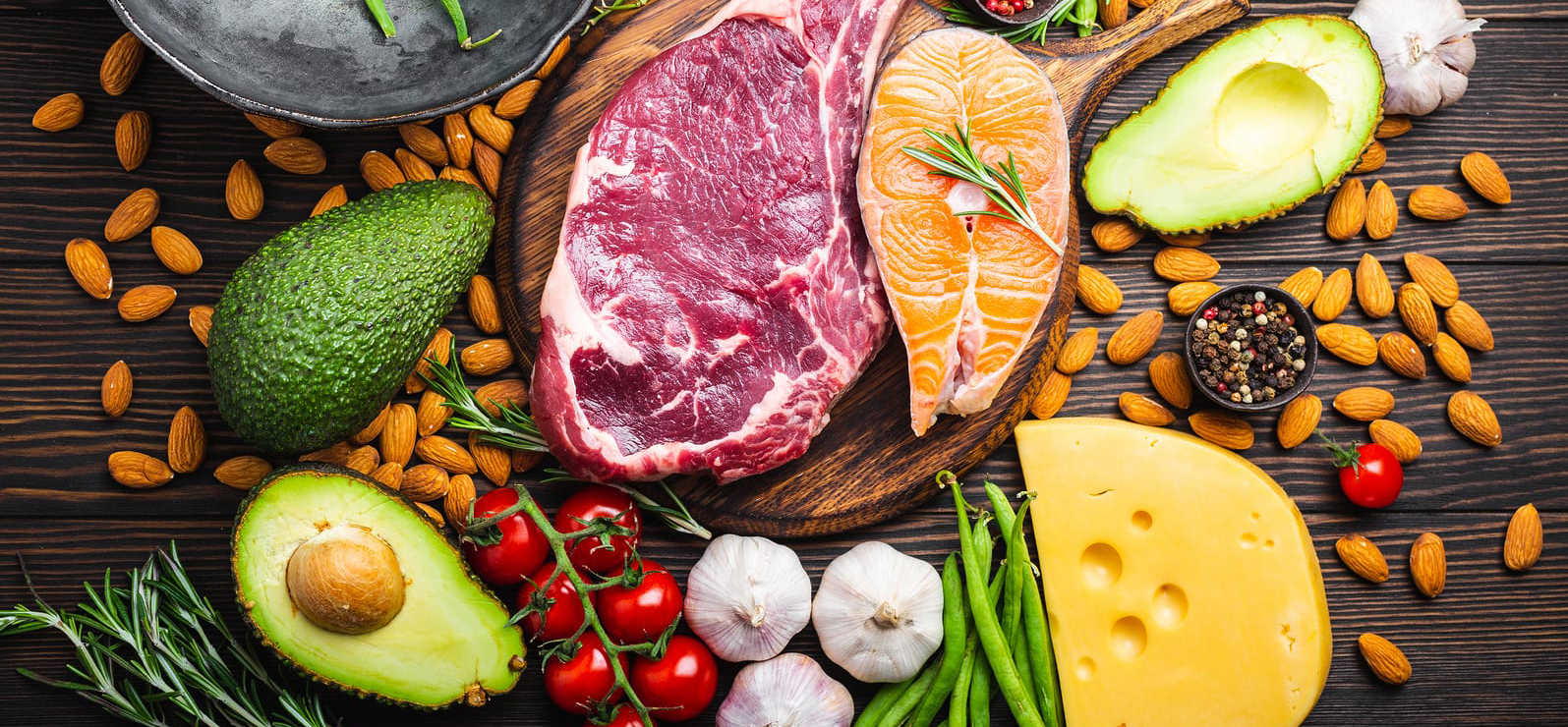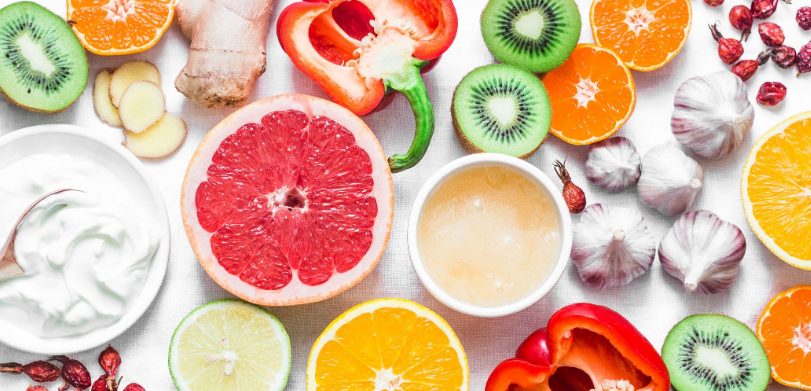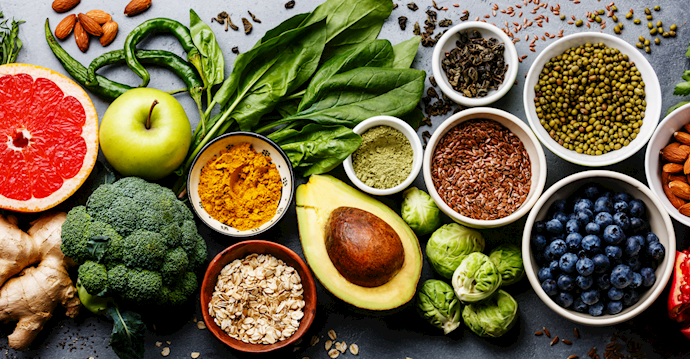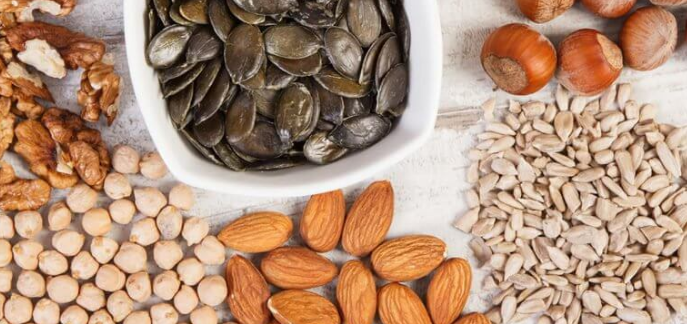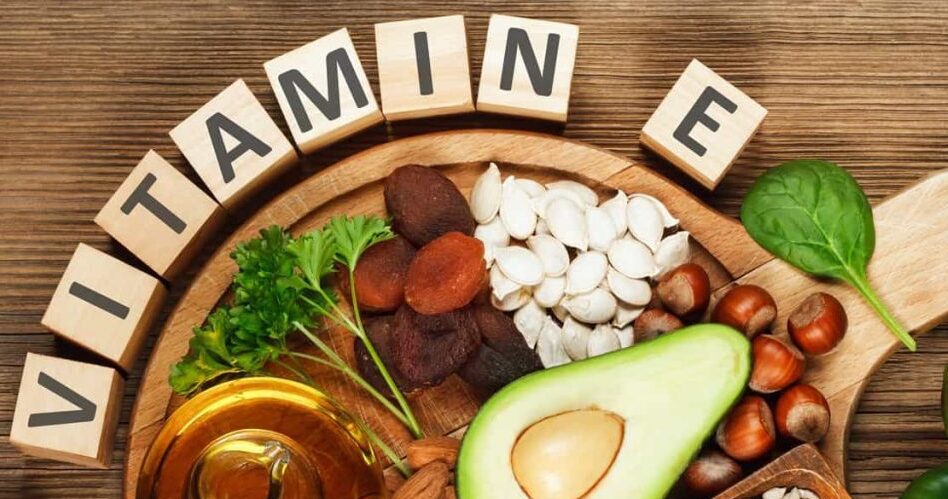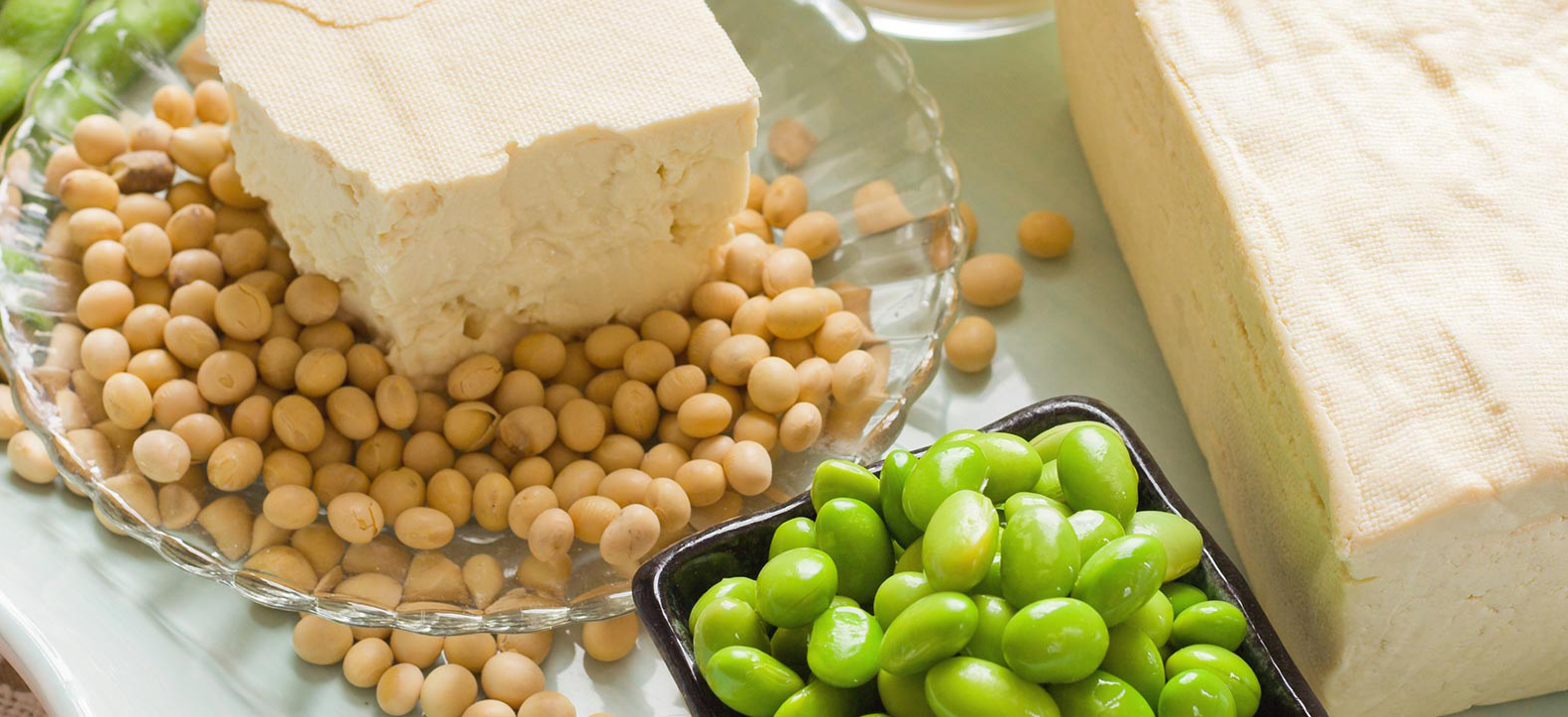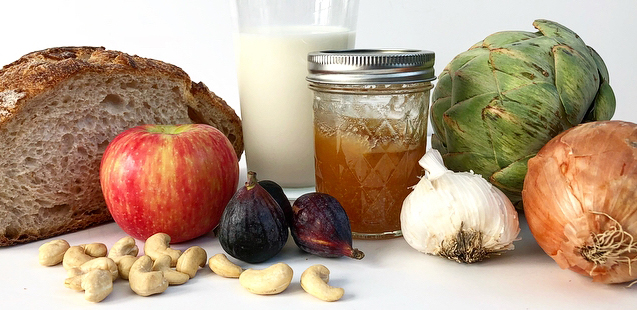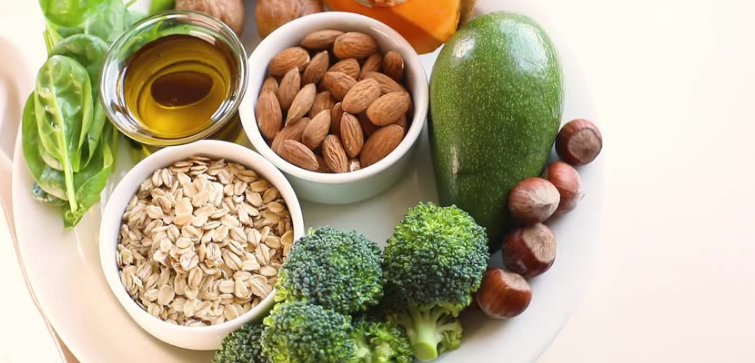Do you feel like you are running on energy solely from your morning cup of coffee? You are not alone. Many Americans use caffeinated drinks like coffee to help them get through the day. Just about 50 percent of Americans drink coffee every day (1).
There is good news. You can get all the energy you need for the day from the foods you eat (2). The proper blend of vitamins, minerals, carbohydrates, amino acids, protein, fiber, and healthy fats equals optimal energy (3).
Energy production starts with the foods you eat. Energy first starts in the body through the production of adenosine triphosphate (ATP), which is the body’s primary source of energy (4). The body breaks down carbohydrates, protein and fats to form ATP (5), (6). The process also needs some vitamins and minerals to be able to break down food into energy (7).
Summary: There is a large variety of foods that give us energy. Carbohydrates, proteins, and fats can be broken down in the body to for ATP, the body’s primary source of energy. Vitamins and minerals are also essential in the process of energy production.
Table of Contents
Foods That Give You Energy
Are you choosing the right foods each day to promote natural energy production? Check out the list below to see what foods give you energy and how you can start incorporating them into your daily diet more often.
1. Fatty Fish
Fish are naturally high in essential B vitamins, which are necessary to promote energy production. This is especially true for vitamins, B12, B6, and folate (8), (9), (10).
Fatty fish like salmon and tuna are also excellent sources of protein and omega-3 fatty acids, making them great foods to include in your diet (11), (12). One of the causes of fatigue is inflammation (13). The omega-3 fatty acids in fish helps in reducing inflammation (14).
Most fish are high in vitamin B12, which is essential to promote energy in the body (8).
Summary: Fatty fish are excellent sources of protein and omega-3 fatty acids that are great sources of energy in your diet. Fish also provide B vitamins, which are essential to support energy production in the body.
2. Avocado
Avocados are full of vitamins, minerals, and healthy fats (15). Healthy fats provide energy and further drive energy production by helping you absorb key vitamins (16). The healthy fats in this tasty fruit are a great way to promote better brain health and energy (15).
You can also easily get your share of potassium in just a portion of an avocado (17). They also contain fiber, phytonutrients, vitamin A, magnesium, vitamin E, K, and essential B vitamins (15).
Summary: Avocados are a great source of healthy fats, which provide a dense source of energy. They also contain lots of potassium, fiber, and many essential vitamins and minerals.
3. Olive Oil
Olive oil is another healthy fat that is an impressive addition to most diets (18). Olive oil ishigh in unsaturated healthy fats that can give you a nice boost of energy (19).
Choosing an oil to use for dressings, cooking, and more is essential in any kitchen. Olive oil is a great option to cook at low temperatures below 375 degrees and to use as a sauce on the side, salad dressing, or even a topping on fresh tomatoes.
You can use olive oil as a part of an easy healthy snack to enhance your energy and enjoy a tasty snack or meal.
Summary: Olive oil is rich in healthy fats, and can be a plentiful source of energy.
4. Legumes
Black beans, pinto beans, and lentils are extremely high in complex carbohydrates, fiber and vitamins needed for energy production, including folate (20). Eating more folate can not only give you more energy, but it is necessary to promote birth defects, too (21).
These legumes are also high in fiber that helps to promote better digestion (22). Fiber is also protective against many chronic diseases, including heart disease (23).
Add some more beans to your diet to get your fill of complex carbohydrates, fiber, and essential B vitamins to improve your energy.
Summary: Legumes are full of nutrients that help promote energy, including carbohydrates, fiber, vitamins and minerals.
5. Bananas
Bananas are high in potassium, vitamin B6, and fiber. Fiber can help slow a blood sugar increase in the body (24).
Add bananas easily to many meals sliced up on a sandwich, in cereal, oatmeal, smoothies, and much more. You can even get creative and make your own “nice cream” out of frozen bananas.
Summary: Bananas are rich sources of potassium, vitamin B6, and fiber, and are an excellent source of energy in the diet.
6. Citrus Fruits
Many fruits can help with natural energy production, and oranges are one of those fruits. Oranges are naturally high in antioxidants and vitamin C (25).
Oranges can also help to maintain the immune system because of the high vitamin C content and other compounds with anti-inflammatory properties (26).
Other forms of citrus fruits that can help with energy include grapefruits, lemons, lime, mandarin, and citron. Try to add more of these fruits to your diet, and see if they benefit your energy levels.
Summary: Oranges can help boost energy. They are naturally high in vitamin C and antioxidants.
7. Goji Berries
Goji berries are another popular fruit that can also help with energy . They are a superfood for a reason. They are naturally high in many antioxidants (27). Antioxidants help to lower oxidative stress in the body (28).
Goji berries are very popular in Asia, and are also a good source of fiber (27).
These berries are dried sweet and wrinkled fruits that go well in breakfasts or snacks. They are a great addition to cereals, oatmeal, and smoothies, too.
Summary: Goji berries are an excellent source of antioxidants and fiber, helping promote energy levels.
8. Eggs
Eggs are full of micronutrients, healthy fats, and protein, making them a key food for energy production (29).
Eggs are also high in leucine, an amino acid that is a building block of protein. Leucine helps the cells take up glucose for energy production (30).
They are naturally high in crucial vitamins and minerals, too. These include essential energy-promoting B vitamins, vitamins A, E, K, and more, with a majority of the micronutrients found in the yolk (31).
Summary: Eggs are a nutrient-rich food, providing many healthy fats, protein, and beneficial micronutrients. They are also a rich source of leucine that can also help the cells take up blood sugar to produce energy.
9. Liver
Beef and lamb liver are some of the most potent sources of vitamins and minerals on the planet.
They contain a heaping dose of vitamin A, zinc, selenium, a wide variety of essential B vitamins (32). The B vitamins are essential components to the production of energy in your body, so eating adequate amounts of B vitamins helps maintain your energy levels (33).
Do not be afraid to add more beef or lamb liver to your diet occasionally, especially if you are low in iron, which is essential to prevent anemia (34). Anemia can increase fatigue (35), so preventing it with adequate iron intake is essential.
Summary: Liver is an excellent source of many vitamins and minerals. Many of these vitamins, especially the B vitamins, are essential to support energy production. Liver is also a good source of iron.
10. Lean Meat
Lean meat like chicken, turkey, beef, pork, and lamb can be important for energy production, too. That is because these meats are high in protein, B vitamins, magnesium, and other vitamins and minerals (36).
The protein can provide some energy, but the B vitamins are essential components in energy metabolism (33).
Summary: Lean meats, like chicken, turkey, beef, pork and lamb, can help with energy because they are high in protein, B vitamins, magnesium and other beneficial vitamins and minerals.
11. Yogurt
Yogurt is naturally high in protein, simple carbohydrates that help to produce more energy in the body (37). Yogurt can also be fortified with probiotics, which play a key role in extracting the energy we need from our food (38).
To get your fill of probiotics, prebiotics, and energy, which can help with all the above, simply add some goji berries to your morning yogurt (39).
Summary: Yogurt is a great source of protein, carbohydrates, and can be fortified with probiotics, which can aid in digestion and improve energy.
12. Beets
Beets and beet juice can be a powerful energy booster as it is a nutrient-rich vegetable that can even help with managing hypertension (40).
Known as having potent anti-oxidant and anti-inflammatory effects, beets can help to promote blood flow and may help reduce risk of several chronic diseases, including heart disease (40).
These vegetables are naturally high in complex carbohydrates, fiber, vitamin B6, folate, potassium, iron, vitamin C, and more (41). All these nutrients are essential in promoting adequate energy throughout the body.
Summary: Beets are nutrient rich vegetable with many benefits, including improving blood flow, anti-oxidant, anti-inflammatory and promoting energy.
13. Dark Leafy Greens
Dark leafy greens are always a good idea to add to your daily diet. They are high in many healthful nutrients, including fiber, vitamin C, vitamin A, iron and more (42).
Maintaining adequate iron intake is especially important for preventing fatigue due to iron deficiency anemia (43).
Leafy greens like spinach, kale, bok choy, collard greens, and more can all be a part of a healthy balanced diet that drives energy production.
Summary: Dark leafy greens are full of many beneficial nutrients, such as fiber, vitamin C, vitamin A, and iron that help promote energy levels and many other health benefits.
14. Quinoa
This is a powerful grain that can significantly help you with more natural energy. Quinoa is a staple for most vegan and vegetarian diets because it is high in almost all nine essential amino acids (44).
Quinoa is a great grain to add to your meal prep routine too. One batch of quinoa lasts about a week in the refrigerator, and it goes well with many meals. You can eat quinoa in place of rice, along with breakfast, and much more.
See if you can swap out your meat of choice for quinoa some days to get more vitamins and minerals without too many saturated fats from meat.
Summary: Quinoa is a great source of natural energy, and can provide all 9 essential amino acids.
15. Seeds
Seeds are full of essential minerals and vitamins that help to promote energy like healthy fats, B vitamins, and more (45), (46).
Try to add more seeds like chia seeds, flaxseeds, sunflower seeds, and more to your diet.
Simply throw seeds into your favorite breakfast or lunch to get your fix of more energy and nutrition.
Summary: Seeds are full of many essential nutrients, like healthy fats and B vitamins, that help promote adequate energy levels.
Conclusion
There are an abundance of foods you can start adding to your diet if you need a boost of energy.
Carbohydrates can provide quick boosts of energy. Protein and fiber also provide some energy while helping digest your foods a little slower for a more sustained release of energy. Additionally, other nutrients, like vitamins and minerals, are also key to helping the body break down the food we eat into energy.
The best thing you can do if you are suffering from low energy is to get a rich variety of healthy foods in your diet.




